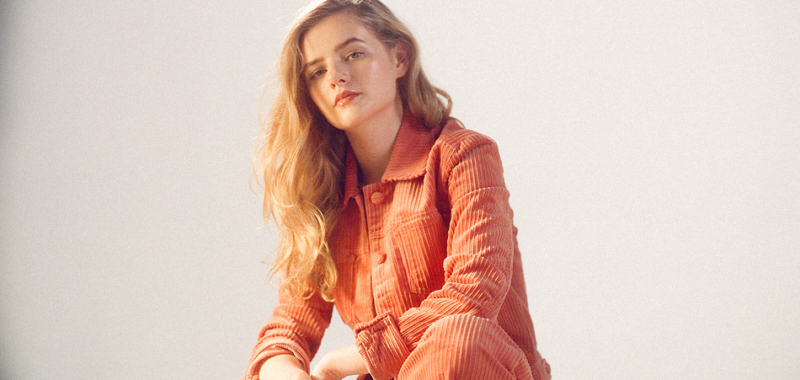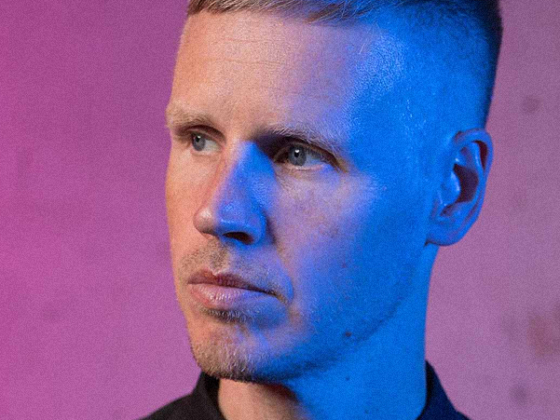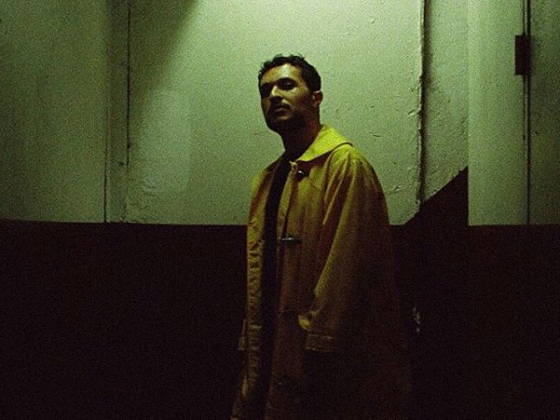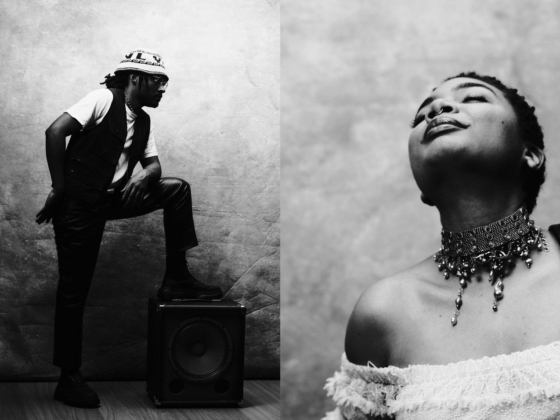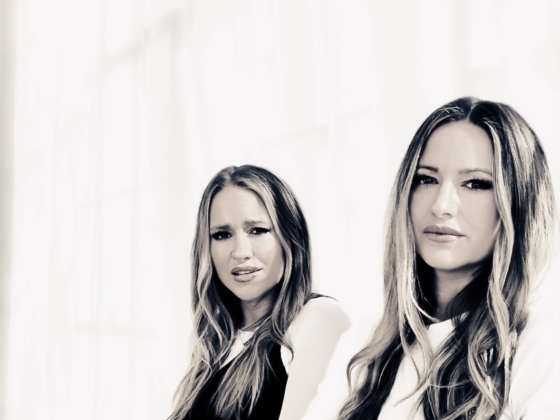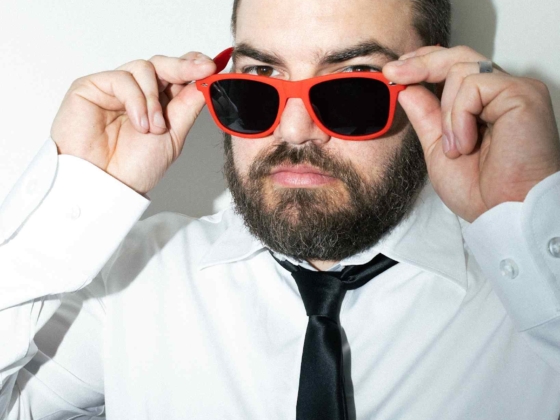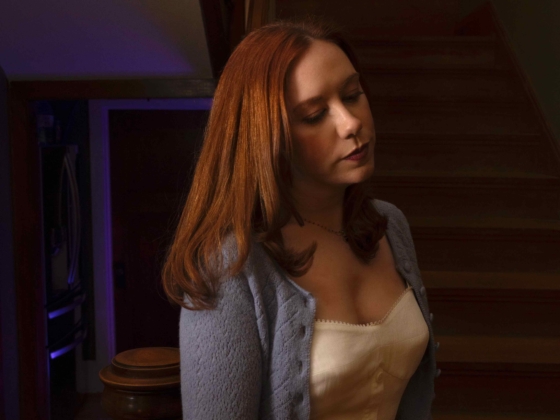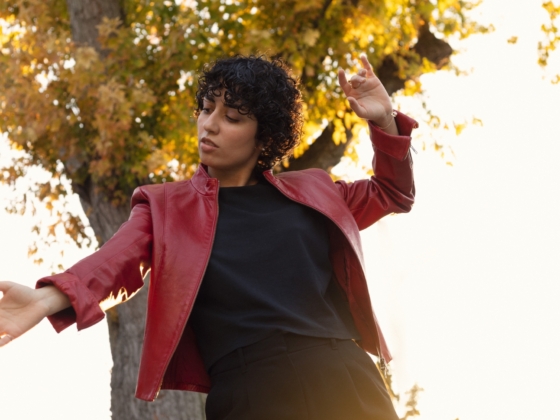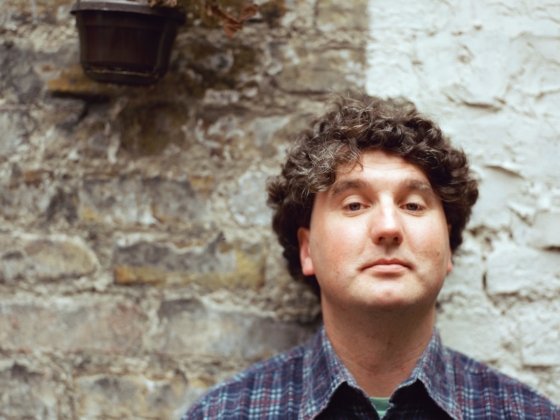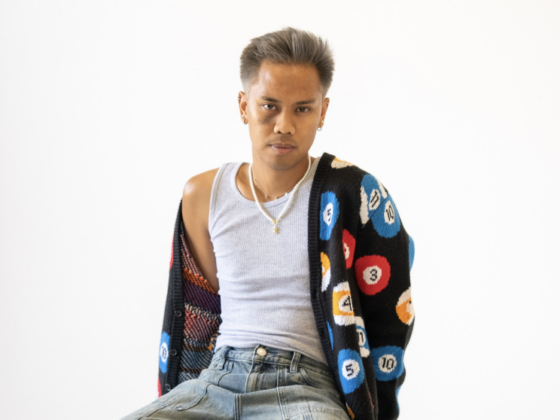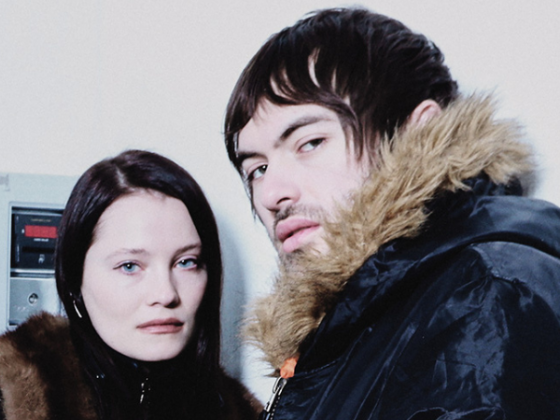Things are looking up for Rosie Carney. EARMILK had the chance to catch up with the British/Irish folk singer, about to release her debut album Bare on January 25th, after what seems like years of stopping and starting.
A musician from an early age, Carney began to play the piano when she was four years old. "I could sit for hours playing little melodies," she quips. I'm greeted by a warm and timid British accent, retained despite her family moving to Donegal, Ireland when Carney was just ten. "Donegal is my main source of inspiration. If I want to write, I go to Donegal. That's not to say I don't also get inspired by London, but there's definitely more movement here," she says.
Her first release of 2018, a folk track with minimalist guitar and echoed production called "Bare," carries a sentiment of wishing to be somewhere else; of trying to lift oneself out of a well. Even in case of Carney's aesthetic, there has been a distinct shift from fuzz to clarity; darkness to light. Ironically, Carney notes that (especially in bustling London) lighting is extremely important to her process: "I feel more inspired when there's subtle lighting. I'm staying at my Auntie's house and I was writing last night and I was sitting in the room and I didn't have any lights on. She came in and I gave her such a fright because I was sat there in the dark," she laughs. Darkness—both literally and metaphorically—is a big part of Carney's songwriting.
In 2017, Carney was hiding. The photos which accompanied her singles were blurred, her face obscured. Now, Carney has turned a new leaf. "I was trying to capture this coldness," she remarks about the past images. "I've tried to introduce colour into my aesthetic, because I've been really inspired by the world around me while writing this album."
Carney was signed to Polydor Records at fifteen, and it felt like a dream come true for the singer. She was quickly integrated into the label and began collaborating with other artists and songwriters. Her life matured a lot more rapidly than a typical teenager would have, though it seemed like she was finally accomplishing something she was always meant to do. Then, unfortunate news came that her label dropped her. "It really came as quite a shock. It all happened so suddenly. I remember I was just about to travel to Bath to collaborate with Crispin Hunt. I was going to his house to do some writing and it really set me backward completely. I had spent the whole year in the studio making music that I actually wasn't too happy with."
The change was a blessing in disguise, although it caused her depression and anxiety to reach one of its many peaks. The singer maintains that "in the months after that, even though it was a really rough time in my life, it really forced me to start again and see things from a different perspective. I got to know myself better. I think that my music has developed from there." Carney's songs carry a personal familiarity with them—tracks that wrap you up like a well-loved winter coat. This kind of intimacy is difficult to convey much of the time, but Carney seems to let her audience know she's right there with them with no trouble at all.
In 2017, Carney published her story online. A frank and brutally honest portrayal of the crippling depression she had experienced from a young age, it touched everyone who came across it, including myself. Naturally, it created an onslaught of conversation in interviews surrounding mental health and Carney's music. I'm conscious of harping on, especially since her latest material is obviously reflective of an emergence from that time in her life. But the twenty-one year old is as open about her struggles as ever: "It's about accepting it that it's a part of me. If my mind wasn't the way that it is, I don't think I'd be creative as well. Being frank and honest about all of that has helped me to accept who I am on a bigger picture. It's a part of me but there's also so much more." Are there consequences to baring your soul all over social media? Of course, but the good far outweighs the bad for Carney.
It's difficult because at the end of the day, as artists, what we do is personal. Obviously I want to be as honest with my audience as possible. It can be really difficult. I'm twenty-one and it's like I'm being asked to have everything figured out…I'm still growing as a person and an artist and there's still so many more experiences I have yet to go through so I think it's very important for me to be honest but also to keep looking forward.
Her latest release "Zoey" was written as a thank you note to Carney's loved ones. "It was written for people I love. I find that when I'm struggling, my family and friends are always there to comfort me. So this song was kind of like me returning the favour. I never tell anyone this but it was actually written for my boyfriend at the time…but it became something for everyone else I care about." It follows a collaboration with Irish folk legend Lisa Hannigan called "Thousand." On the track, the two women's vocals blend like a dream. Carney met Hannigan at a festival they both played in Cork. It was a milestone in Carney's career, and I can hear the incredulity in her voice as she says "she recognized me, came up to me and told me that she loved my music. She said if I ever needed backing vocals to let her know, which was insane because I'm such a fan of hers." It was the right collaboration at the right time. "I finally have my sound nailed down," she says, "I'm happy I did this album by myself."
If she has any advice for other young people in the industry, it is simply "to stay true to themselves. It's so important to follow your gut and what you feel is right." It is impossible to ignore the hope in Carney's latest material, and that she has slipped into herself is palpable.

